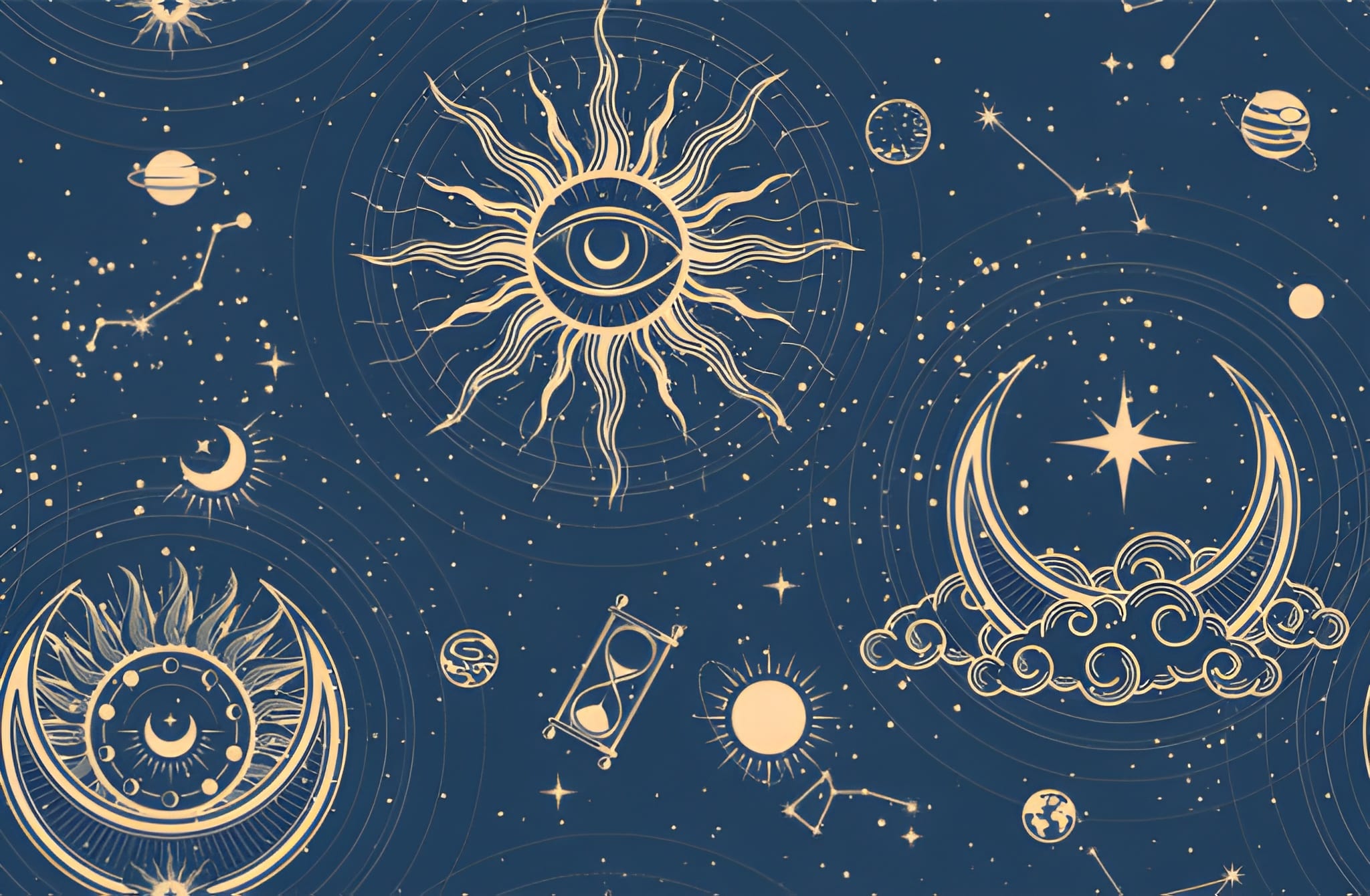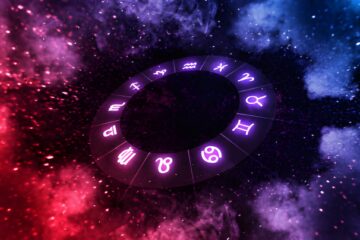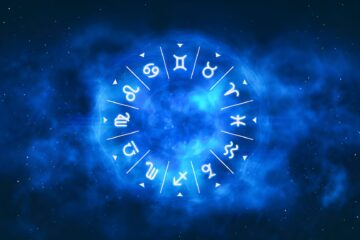When you’re reading a chart and you see “Harsha Bala,” you’re looking at something subtle but emotionally important. Harsha Bala in Vedic Astrology is not just raw strength. It is the happiness level of a planet — how peacefully that planet is able to express itself in your life. It describes contentment, not dominance.
In plain terms: a planet can be powerful and still make you miserable. A planet can be modestly strong and still make you feel at ease. Harsha Bala helps you see that difference. It tells you, “How satisfied is this planet within you?” not just “How loud is it?”
The Sanskrit word harṣa means joy or delight. So Harsha Bala is literally a happiness score for each planet, traditionally measured on a scale from 0 to 20. Higher Harsha Bala means the planet delivers its results with more grace, peace, and emotional fulfillment. Lower Harsha Bala means the planet may still produce events in your life, but those events may feel restless, insufficient, or stressful.
Harsha Bala in Vedic Astrology is especially emphasized in Varshaphala (annual solar return) techniques, but the logic carries into natal work too. If a planet is “happy,” you tend to experience its periods (dasha, sub-period, transit activation) with relative ease. If it’s “unhappy,” you may get outcomes — career movement, relationship developments, money flow — but without inner satisfaction.
Why Harsha Bala in Vedic Astrology Matters
Most students learn Shadbala first. Shadbala is about objective force: How strong is the planet? How capable is it of producing results in the physical world?
Harsha Bala is different. Harsha Bala asks, “Is the planet content while doing its job?” This fills a huge interpretive gap. Because if you’re reading for someone and you only look at strength, you might predict success while they are internally breaking. With Harsha Bala, you can say things like: “Yes, Saturn will push you into responsibility this year. But Saturn is actually unhappy, so you may do well and still feel internally anxious, underappreciated, or lonely.”
That level of honesty is exactly what modern students and clients resonate with. It’s compassionate and technically correct.
How the Harsha Bala Scale Works
Each planet receives a score from 0 to 20. The higher the number, the more peacefully and naturally that planet can express its nature in your life. This has nothing to do with being “lucky” or “cursed.” It’s describing the quality of your lived experience with that planet’s themes.
- 0–4: Unhappy, agitated, restless expression. Results often feel frustrating or incomplete.
- 5–9: Mixed contentment. Things work sometimes, then feel unstable or emotionally draining.
- 10–14: Functionally happy planet. Delivers results with relative harmony and emotional steadiness.
- 15–20: Very happy / at-ease planet. Expression is smooth, graceful, deeply fulfilling.
In practice, once a planet has around 10 or more points, its periods (mahadasha, antardasha, pratyantardasha) tend to feel “okay to good,” unless other serious afflictions are operating. When a planet is below ~5, the native often reports: “Things happened, but I didn’t feel satisfied. I felt restless, pressured, or emotionally off.”
Important: Rahu and Ketu are excluded from Harsha Bala in Vedic Astrology. They are shadow grahas, not physical planets, and they don’t “feel happy” the way the visible grahas do. We judge Rahu and Ketu using other methods — sign lord dignity, conjunctions, nakshatra context, aspects, and whether they sit in upachaya houses.
The Four Components of Harsha Bala
Harsha Bala in Vedic Astrology is built from four contributing factors. Each factor can add up to 5 points. Total possible = 20. These four factors describe how comfortable, natural, or “at home” the planet feels in its situation.
1. House Placement: Where the Planet Feels at Home
Certain houses are considered psychologically comfortable for certain planets, because those houses support the planet’s natural function.
- Sun: Feels happiest in the 9th house — dharma, guidance, purpose, respect.
- Moon: Feels happiest in the 3rd house — adaptability, courage, responsiveness.
- Mercury: Feels happiest in the 1st house — intellect at the center of identity, self-expression.
- Jupiter: Feels happiest in the 11th house — expansion, gains, networks, fulfillment.
- Mars: Feels happiest in the 6th house — battle, problem-solving, victory over obstacles.
- Saturn: Feels happiest in the 12th house — detachment, endings, karmic closure.
- Venus: Feels happiest in the 5th house — love, pleasure, art, creativity, romance.
If a planet sits in “its happy house,” it earns 5 points in this component of Harsha Bala. The idea here is intuitive: Mars genuinely likes conflict it can win. Venus genuinely likes romance and aesthetic play. Saturn genuinely likes finishing cycles and releasing attachment. A planet that gets to live its nature is a planet that’s emotionally settled.
2. Dignity: Exaltation, Mooltrikona, or Own Sign
A planet in exaltation, mooltrikona, or its own sign acts with clarity. It knows what it’s doing. It feels stable. That natural self-possession earns another 5 points toward Harsha Bala in Vedic Astrology. This echoes what you already know from dignity analysis: a planet that’s strong in its own environment tends to express more cleanly, without distortion.
If a planet is fallen, combust without support, or in an enemy sign, you will often see that reflected as lower Harsha Bala. The planet may still “do things” in your life, but it does them under stress.
3. Gender Harmony With the House
This is where it gets interesting. The system assigns “masculine” and “feminine” qualities to houses, not just to signs. Then it compares that to the gender of the planet.
- Masculine houses: 4, 5, 6, 10, 11, 12
- Feminine houses: 1, 2, 3, 7, 8, 9
Then we look at planetary gender:
- Feminine (soft/receptive): Moon, Venus
- Masculine (directive/active): Sun, Mars, Jupiter, Saturn, Mercury
If a feminine planet (Moon, Venus) sits in a feminine house, it gains 5 points in this component. If a masculine planet (Sun, Mars, Jupiter, Saturn, Mercury) sits in a masculine house, it gains 5 points. The logic is resonance: “Is the environment aligned with how this planet behaves?”
Note: This “house gender” classification is its own internal system. Do not confuse it with sign gender (like Aries masculine, Taurus feminine). You are not looking at sign gender here. You are judging the house number in the specific chart.
4. Day vs Night at Varshaphala Solar Return
For Varshaphala (the annual solar return chart), we also look at whether the Sun returned to its natal longitude in daytime or nighttime. Why? Because the “birth” of that solar year sets a tone for which planetary energies feel supported.
- If the Varshaphala chart is cast for a daytime solar return, masculine planets receive +5 in this factor.
- If the Varshaphala chart is cast for a nighttime solar return, feminine planets receive +5 here.
This links Harsha Bala in Vedic Astrology to timing. The year itself either smiles on masculine expression — drive, assertion, authority — or feminine expression — receptivity, bonding, intuition, aesthetic pleasure. That tone matters for how “fulfilled” the planet will feel in that year’s storyline.
Interpreting Harsha Bala in Prediction
Here’s the practical reading move: High Harsha Bala means that planet’s themes tend to feel emotionally satisfying when they activate. Low Harsha Bala means the same themes may activate, but with agitation, insecurity, or a sense of “this isn’t enough.”
Examples:
- High Harsha Bala Moon: Emotional steadiness, ability to self-soothe, healthier bonding, inner calm even during external stress. The person can “come home to themselves.”
- Low Harsha Bala Moon: Mood volatility, emotional hunger, chronic dissatisfaction. Even supportive transits feel draining or lonely because the inner container is restless.
- High Harsha Bala Saturn: Responsibility accepted with dignity. Discipline feels meaningful, not punishing. The person can do hard work without feeling empty.
- Low Harsha Bala Saturn: Anxiety, exhaustion, duty without appreciation. Outer success with inner burnout. “I achieved, but I still feel afraid.”
Notice the pattern: Harsha Bala is not saying whether you get married, get promoted, or relocate. It’s saying how that experience lands inside your nervous system when it does happen. You can absolutely “win” during a low-Harsha period and still feel hollow.
This is why we always pair Harsha Bala with other measures like Shadbala, Vimsopaka Bala, ishta/kashta phala, dignity, aspects, combustion, upachaya support, and dasha timing. No single metric decides fate. Repetition across multiple indicators is what gives confidence.
Important Notes
Does Harsha Bala affect dashas or only the houses a planet owns?
Both. A planet with high Harsha Bala colors its mahadasha and antardasha with emotional ease. But even if that planet never runs a full mahadasha in your lifetime, its “happiness level” still flavors the houses it rules. So if Venus rules your 5th and 10th and Venus is genuinely happy, creative self-expression and career joy tend to feel sweeter when Venus sub-periods or Venus transits activate those houses.
What does a Harsha Bala of zero actually mean?
Zero means the planet is deeply unsettled. It’s acting under internal tension. The native may report anxiety, dissatisfaction, or a feeling that “nothing lands right” during that planet’s active periods. This does not mean doom. It means you have to work consciously with that planet’s nature — through lifestyle, mindset, boundaries, and often service — to soften that internal friction.
Is the max score 20 or 29?
20. You may see “29” in random charts online. That’s not standard. Classical Harsha Bala in Vedic Astrology is structured as four factors worth 5 points each. 4 x 5 = 20 total. When you see 29, you’re usually looking at copied tables with math errors or blended systems.
Where do Rahu and Ketu fit?
They don’t. Rahu and Ketu are not scored in Harsha Bala because they’re not “happy” or “unhappy” in a human/emotional sense. They represent karmic hunger and karmic detachment. We judge them through sign lord dignity, house placement (especially upachaya houses like 3, 6, 10, 11), aspects, and their relationship to functional benefics or functional malefics for the given Ascendant.
FAQ
Can Harsha Bala be used in the natal chart, or only in Varshaphala?
It’s most classically applied in Varshaphala, because the day-versus-night solar return component is built into the calculation. But yes, you can use the logic in the natal chart too. In natal reading, Harsha Bala describes which planets you naturally feel at peace embodying. A planet with lifelong “low happiness” can still give results, but you may always feel some unsettledness around its topics.
What if a planet has high Shadbala but low Harsha Bala?
This is common and very real. High Shadbala plus low Harsha Bala means: the planet is strong enough to act, but not comfortable doing it. Outwardly you perform. Inwardly you feel tension, pressure, or lack of nourishment. That’s the classic “I’m succeeding, but I’m not happy.”
Can you “fix” Harsha Bala with remedies?
The numeric score itself is structural, but the experience can absolutely be softened. If Saturn is unhappy, disciplined service, humility, and responsible boundaries help. If Venus is unhappy, beauty, affection, pleasure that isn’t self-destructive helps. And, if the Moon is unhappy, emotional regulation, rest, and safe bonding help. We are not promising magic. We are saying you can align yourself with the planet’s nature so you stop fighting it internally.
Is Harsha Bala about external results or internal peace?
Primarily internal peace. Material results still come from dignity, yogas, upachaya activation, dasha timing, transits of Saturn/Jupiter/Rahu-Ketu, and repetition across multiple lagnas. Harsha Bala in Vedic Astrology tells you how gracefully you will live through those results. That’s why it matters: prediction is not only “what happens,” but “how are you inside what happens?”
Keep Studying with Much Needed Astro
If you’ve ever hit a so-called “good period” and thought, “Why don’t I feel good?” — that’s Harsha Bala speaking. This is the missing piece most pop astrology never teaches: strength without happiness can still feel empty. Soft strength with inner contentment can feel like relief, even in an objectively average year.
Much Needed Astro exists so you can read like that — like a serious practitioner. We honor classical technique, but we’re not here to scare you or flatter you. We’re here to tell you what your chart is actually trying to live. If you’re serious about studying real Jyotish, stay with Much Needed Astro: practical, lineage-respecting astrology without fear tactics, so you can stop guessing and start reading with confidence.




